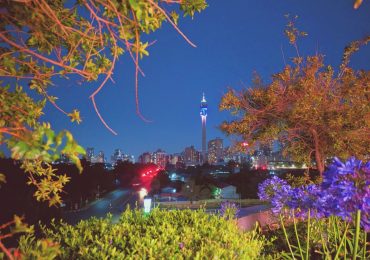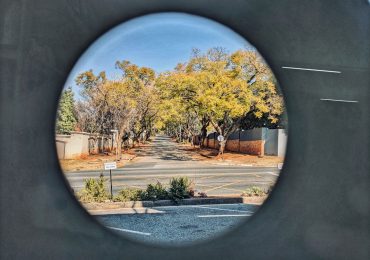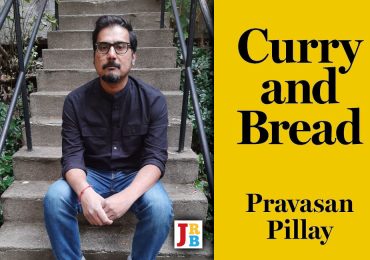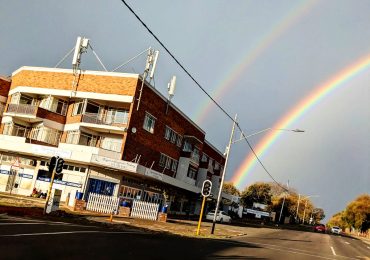Durban, South Africa’s largest port city and hometown to dozens of noted writers—from the likes of Lewis Nkosi and Ronnie Govender to John van de Ruit, Peter Harris and ZP Dala—has been named a Unesco City of Literature, alongside seven other cities across the world, including Manchester (UK), Seattle (USA) and Bucheon (South Korea).
The Cities of Literature designation, which Durban will officially receive in 2018, is part of Unesco’s wider Creative Cities Network.
The Unesco designation ‘City of Literature’ recognises excellence and places an obligation on cities to nurture and support their artform and collaborate internationally by sharing best practice, supporting freedom of speech and through projects which ensure literature reaches as wide and diverse an audience as possible, locally and internationally.
The criteria for being named a City of Literature include:
[The] City of Literature designation which is awarded by Unesco to cities with strong literary heritage, a vibrant contemporary scene, and importantly to cities where their sector works collaboratively to grow and develop their city through their chosen artform, via capital development and cultural engagement programmes.
The announcement of the new batch of Cities of Literature was made in Edinburgh, Scotland—the first city to carry the designation—on 31 October. The other cities standing alongside Durban are: Bucheon (South Korea), Lillehammer (Norway), Milan (Italy), Utrecht (Netherlands), Manchester (UK), Québec City (Canada) and Seattle (USA).
Already known for its internationally-acclaimed Time of the Writer and Poetry Africa festivals, and its innovative Literary Tourism project, the latest literary feather in Durban’s cap comes thanks to the efforts of a team of writers and librarians led by veteran literary activist Darryl David.
David, currently Head of the Department of English at the University of KwaZulu-Natal, gave an interview to local books and literature news site LitNet after the announcement broke:
Durban became the first city in South Africa and on the African continent to become a Unesco World City of Literature in 2018. Darryl David, former Head of Afrikaans at UKZN, headed Durban’s bid for Unesco City of Literature status. In addition, Head of Libraries Tebogo Mzizi and Durban writers Ashwin Desai and ZP Dala have played no small part in this project. Darryl David tells Naomi Meyer about this important announcement and what it means for this country’s literary scene.
Darryl, breaking news: Durban’s bid to become a Unesco World City of Literature in 2018 has been successful. What does this mean?
Yes, we did it Naomi. Durban is now the first Unesco City of Literature on the African continent. This is big. In a sense it means that Durban becomes the literary capital of Africa, the literary gateway to Africa. Everything that the city plans from now, literature must be at its heart. It must define the city. Statues of writers need to be built, literary trails need to be developed. We already have three major literary festivals in the city: Time of the Writer; Poetry Africa and most recently ARTiculate Africa. Our bid was built on these cornerstones. By joining the Unesco City of Literature family, the literary world will open up to Durban. I said it after I curated ARTiculate Africa at the end of September: if I am given the nod to curate ARTiculate Africa again, I already have one Nobel Laureate, one Pulitzer Prize winner and three Booker Prize winners lined up to come to Durban in 2018.
Durban-based author ZP Dala, who received an outpouring of support from writers around the world after being assaulted during the 2015 Time of the Writer, told Times LIVE:
“I was selected last year to take part in the United Nations of Writers residency programme in the US. This is how the idea of making Durban a City of Literature arose and it is where we gained the mentorship of Iowa city‚ itself a City of Literature‚” she said.
Contacted by The JRB, Darryl David further elaborated on his vision for Durban as City of Literature:
The Unesco City of Literature designation is about marketing your literary heritage on a scale seen in Dublin or Reykjavik. Writers’ Houses. Literary trails. Statues of writers. Sculptures of books. This will be the difficulty, getting stakeholders from tourism, heritage, arts and culture to all work together and pool their respective budgets to create a literary tourism product never before seen in SA. In our mind’s eye, we know what a Unesco City of Literature should look like. But for now, we are planning the mother of all parties. We believe a project of this magnitude needs to be celebrated in style.
In addition to naming Cities of Literature, Unesco nominates one city per year as its World Book Capital, which in 2017 was Conakry, Guinea. Read The JRB’s dispatch from that celebration here; we certainly look forward to contributing dispatches from South Africa’s very own City of Literature in the years ahead.





